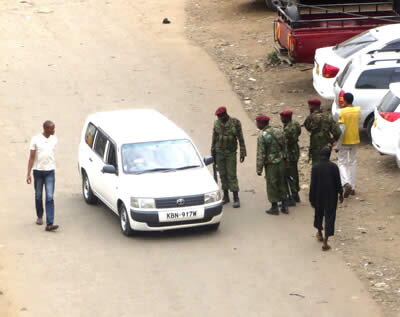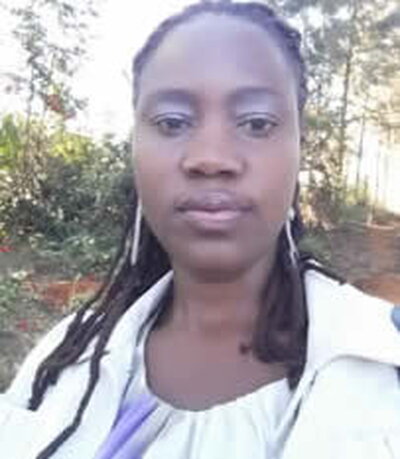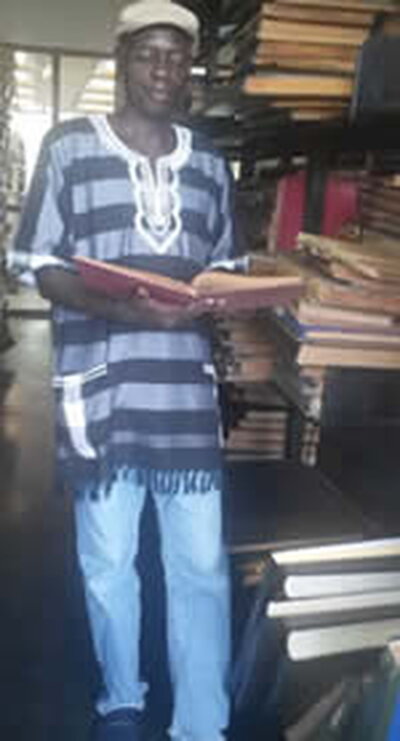

Soldiers stop a car on my street May 2014
by Sophia Balakian, Doctoral Candidate in Anthropology
Since August, 2013, I have been conducting fieldwork in Nairobi, Kenya, on refugee resettlement processes for Somalis and Congolese who are hoping to be granted one of a few opportunities to resettle to the U.S. or Canada. About one month after arriving in Nairobi, the Somali group Al Shabaab attacked an upscale shopping mall in a siege that lasted three days and killed sixty-seven people. Since I had come to study refugees in Nairobi, including the Somali community, the event heightened an already tense fieldwork situation. The mall attack was the latest and most visible in a cycle of attacks in the capital and elsewhere in the country. I was filled with fear about this violence. I was anxious about how I would be perceived as a white American in the neighborhoods where I was beginning to work. And my Somali friends and interlocutors were bracing themselves for reprisals by government forces.
Six months after the attack, the government announced a Directive for all refugees in Nairobi (between around 50,000 and 100,000 people) to leave the capital and move to Kenya’s remote and insecure refugee camps. This Directive was followed by a security operation that the government described as an anti-terror action, but which targeted refugees en masse—primarily Somalis, but also other communities, including the Congolese. Thousands of people were arrested over the course of about two month in nightly door-to-door raids in select neighborhoods. Police and soldiers used the event as an opportunity to extort massive sums of money from these communities. Over 150 Congolese refugees in a neighborhood where I was working were arrested from their church and bused to camps. This was especially distressing as many from this community are survivors of a massacre that took place in a camp in Burundi, and of mass extermination campaigns in their own country. The arrest and forced relocation unearthed deep wounds.
The spring 2014 landscape became a focal point of my research for some time, and of my daily life and interactions. Police and military presence increased in my neighborhood. I carried my passport everywhere and became accustomed to police checkpoints and questioning. I also became accustomed to keeping quiet about my research (not my normal mode) in effort to keep myself and my interlocutors secure. One of my research assistants was deported to a camp; another became embroiled in a bureaucratic quagmire surrounding his identification documents. None of my interlocutors were unaffected. Because of the heavy police and military presence, I couldn’t visit people as easily as I had done, and began relying on social media more for a month or so. Messages from friends on WhatsApp, Tweets, and Facebook posts were key. One of my committee members has told me occasionally, “Follow your nose.” At that time, it was clear I had to follow the Operation, however cautiously, and with whatever methodological modifications I could think up.
Lydiah Kananu’s research in Kenya

Over the past six months Lydiah Kananu has been conducting dissertation research in Eastern Kenya. Her research involves multilingual literacies and their appropriation in classrooms. Kenya is one of the multilingual countries that promote monolingual English literacy in schools despite the pervasiveness of other languages that children bring to school from their homes. Her research focuses on multilingual classroom interactions—ways in which teachers and students draw on the multiple language resources in their communicative repertoires. The goal of her research has been to understand how the multilingual linguistic repertoires are appropriated in the classroom in the process of literacy learning. Additionally, she focuses on how views of teachers and students about their communicative repertoires are shaped by the wider social, economic, and political context together with ideological legacy of post colonialism. Lydiah’s research situates the classroom as a discursive site for social reproduction and contestations of linguistic ideologies and hierarchies. She takes the classroom and its wider socioeconomic and political contexts as key factors needed to examine pedagogical goals. The Kenyan rural classroom was a rich source of data for this research study, within the broader concept of a rich linguistic heritage.
Chicken Swahili-A fieldwork postcard

Rukia, the bartender, regarded me with a mixture of wonderment, pain, and sympathy as I struggled to sustain an erudite conversation in Kiswahili with a Tanzanian Pan Africanist comrade on the cellphone. Nsajigwa Mwasokwa, my Tanzanian friend, listened patiently. He and I had reached an understanding that the best way for me to improve my Kiswahli rapidly was to wade into the deep end, with the occasional lifeline thrown only when I was clearly drowning.
This particular evening, I must have really been perpetrating a grammatical and terminological bloodbath because at one point, Rukia's fascination with my stumbling efforts turned into a series of alarmed winces. "Now I know how someone who is learning a language struggles to be understood," she told Nsajigwa. "He is looking for the words like a chicken foraging for food in the sand."
"Sister, I heard you!" I protested. Then I told Rukia, or so I thought I did, that I didn't mind her laughing at me because very soon I would be flirting with Tanzanian women in fluent Kiswahili. She and Nsajigwa roared with laughter. But I could tell from the way they looked at each other that in my retort, I had unintentionally conveyed a meaning that completely escaped me. I looked at Nsajigwa quizzically.
"Ah my friend," he said in between more peals of laughter. "You just told her that she was laughing at you seductively." My attempt at a humorous reproach had backfired. But despite the burning in my ears, the chill-out at the Twiga Club in the working class neighborhood of Wazo Hill, Tegeta, in the northernmost ends of Dar es Salaam, was a welcome respite from the tedium of long hours spent poring over research documents or navigating Tanzania's endless bureaucratic mazes.
I arrived here at this coastal city of nearly 4.5 million at the end of November for my dissertation fieldwork on the political economy of the changes in Tanzania's information policies since the Arusha Declaration in 1967.
Why did you choose to do your doctoral research in Tanzania? When people from Uganda (where I was born and raised) and South Sudan (homeland for nearly a half of my kinsfolk) ask me the question, there is a tinge of rebuke in their voices conveying a sense of betrayal. The implication is that either of those two countries should be the natural fieldwork destination for me. Invariably, Tanzanians who find out that, although a fellow East African, I have come here by way of an American university, are often baffled that I would find anything of scholarly interest in their country that isn't comparable to my own. In other words, if you are not studying at a Tanzanian university, why don't you take advantage of carrying out research in more familiar and less daunting places? Most Dar residents from other African countries who have discussed my choice of research location frequently express pity for me. Tanzania has gained the reputation for being difficult to navigate for a couple of reasons. Someone who doesn't have a good grasp of Kiswahili will face a major communication challenge. And the official Tanzanian attitude, as encoded in the way immigration law is interpreted and enforced, can give the impression that the country prefers an insular relationship with the rest of Africa. So, there is always a tension between the generous hospitality and unrivaled politeness of Tanzanians and the default aloofness with which bureaucracy requires them to hold other Africans at arm's length.
It would be really interesting for a sociologist or political scientist to probe the reasons behind this almost schizophrenic disposition towards fellow Africans, especially considering the leading role Tanzania played in hosting and supporting African liberation movements, including the armed ones, fighting the European settler colonialists in southern Africa .My friend Nsajigwa, a self-taught intellectual with a razor-sharp analytical mind, offers plenty of explanations for this phenomenon, much of it self-critical from a Tanzanian perspective.
So, why Tanzania? This country is unique in all of Sub-Saharan Africa. The independence-era leaders of the country, from Mwalimu Julius Nyererere down, took the responsibility of decolonizing our continent so seriously that they decided to make Kiswahili, the most widely spoken lingua franca in the Great Lakes region of eastern and central Africa, the national and official language. Through radical political, economic, and cultural decisions such as this, Tanzania essentially turned itself into a liberation state, offering military training and bases, as well as diplomatic and other kinds of support and a conducive environment for anti-imperialist struggles at a Pan African and global level. As an information scholar, I have embraced the opportunity to explore the impact of the power relations in Tanzania during both the liberation and neoliberal eras on the making of policies regarding telecommunications, mass media, book publishing, libraries, and language. I think there is a useful lesson for all Africans and other formerly colonized peoples in this history. Fortunately for me, a dissertation travel grant from the Graduate College and support from the Graduate School of Library and Information Science— my academic home—have made this six-month research trip possible and affordable. Additionally, Center for African Studies alumni Dr. Josephine Yambi and Joshua Mlay, both based here in Dar, have gone to bat for me each time I am in some type of jam.